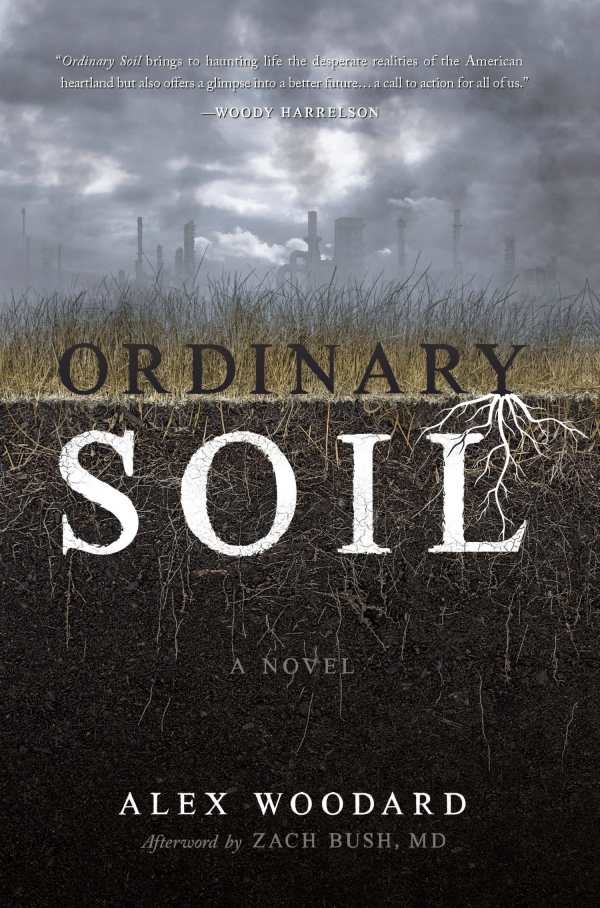Ordinary Soil
In the multigenerational novel Ordinary Soil, a troubled man learns anew how to respect the land he farms.
In Alex Woodard’s novel Ordinary Soil, a medical researcher and his chronically ill patient discover truths about generational trauma and the adverse effects of chemicals.
Mark is an inquisitive physician and an oncology researcher who meets Jake, a patient at a clinic in rural Oklahoma. Jake, an exhausted farmer, attempted suicide; he is haunted by a ghostly figure in long braids and a fringed shirt. Together, Jake and Mark investigate how a century of mechanized farming and pesticides harmed Jake, his family, and his surrounding community; Jake’s father’s Parkinson’s disease is tied in. Jake is prompted to seek a healthier way to farm, both for his family and to preserve the fruitfulness of their land.
Characters from Jake’s past and present are introduced to tell parallel stories and to flesh out the book’s themes of generational trauma suffered at the hands of racist and capitalistic forces. Such trauma is reflected in visceral scenes of physical abuse, emotional neglect, and addiction:
He threw the boy against the wall and watched him crumple to the floor, before charging toward his wife in the back bedroom. His rebuffed kicks to the locked door told him that she’d pushed the new dresser across the threshold, but that was no match for the hatchet by the fireplace.
Among the cast are Aki, Jake’s Choctaw ancestor who knows the danger of forgetting the old ways and accepting new technologies. Before he dies, Aki tries to teach his son about the importance of respecting the land. Aki’s son is forced to attend a boarding school, filling him with anger over how Native Americans are treated while impeding his ability to pass down family wisdom to the next generation. And in the novel’s present, Jake and his brother Adam are Aki’s living descendants; they feel broken. Jake is apathetic to his wife Jessica, who craves an emotional connection; their daughter Hailey died of leukemia. Meanwhile, Adam is an addict.
The book’s scene setting furthers its themes; even the local topography is shown to have suffered in the name of progress. Its message that the planet is at a tipping point in part because of twentieth-century farming practices somewhat overwhelms Jake’s story in the end, though; the book becomes forceful about conveying the idea that chemicals and pesticides hurt the diversity of the soil. Epigraphs from members of other Native American nations further dilute its particular story.
In the multigenerational novel Ordinary Soil, a troubled man learns anew how to respect the land that his family has farmed for generations.
Reviewed by
Natalie Marino
Disclosure: This article is not an endorsement, but a review. The publisher of this book provided free copies of the book and paid a small fee to have their book reviewed by a professional reviewer. Foreword Reviews and Clarion Reviews make no guarantee that the publisher will receive a positive review. Foreword Magazine, Inc. is disclosing this in accordance with the Federal Trade Commission’s 16 CFR, Part 255.

